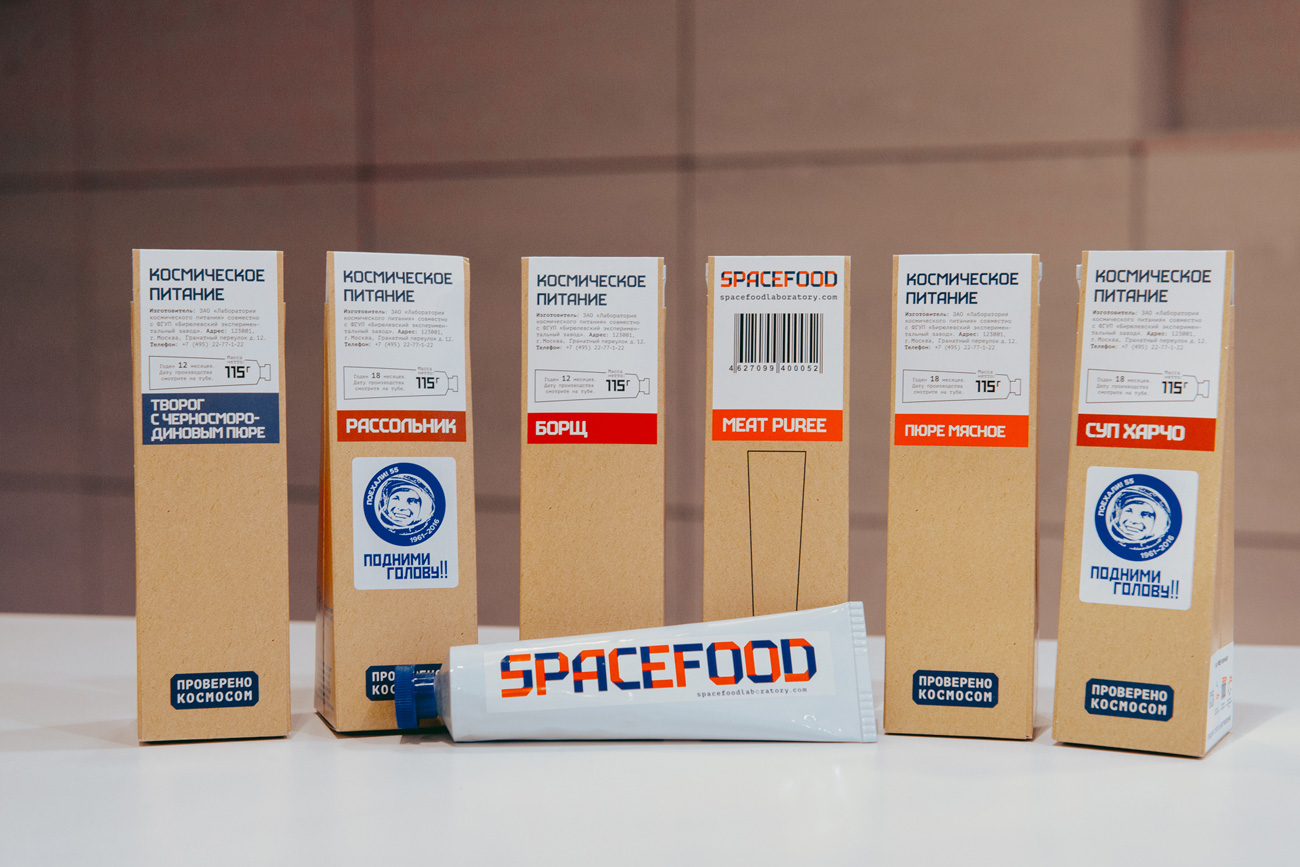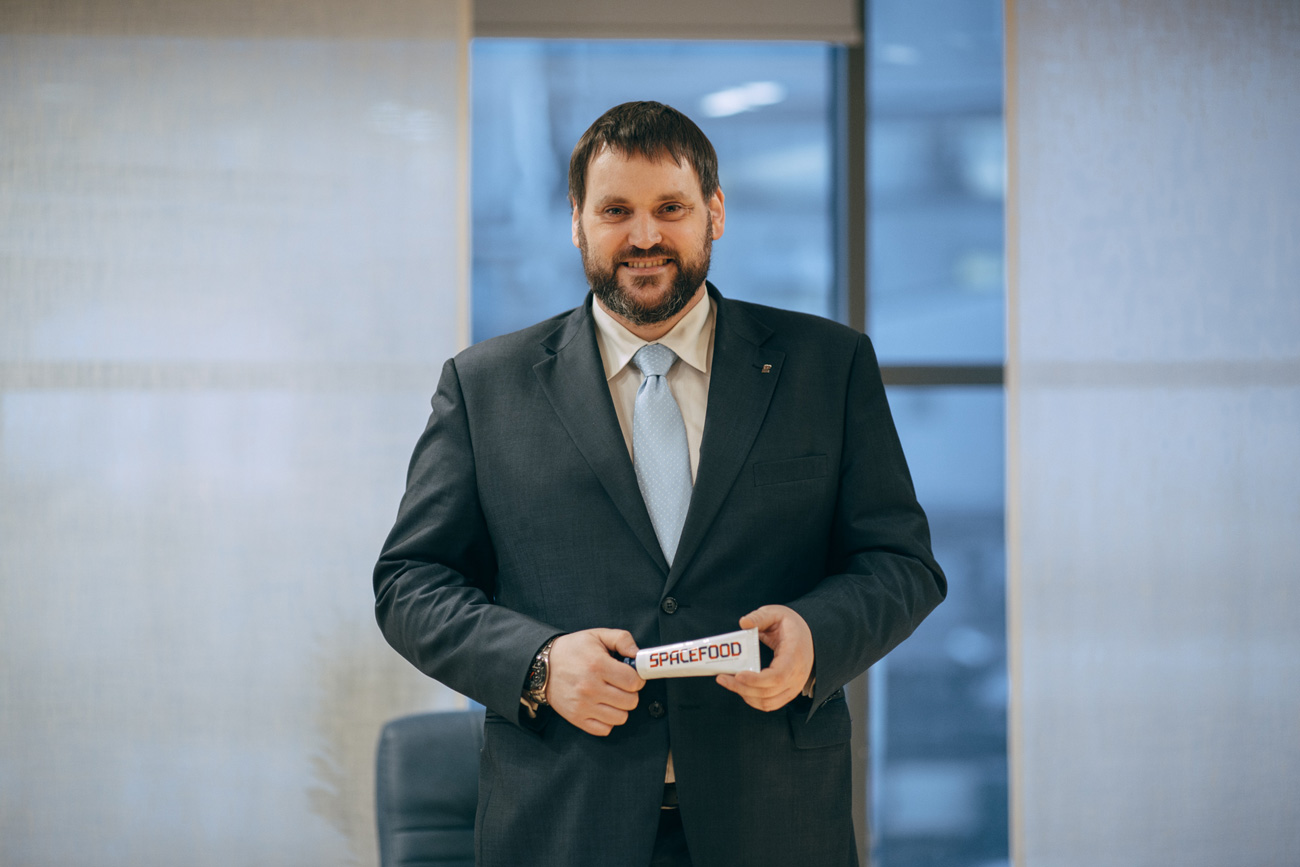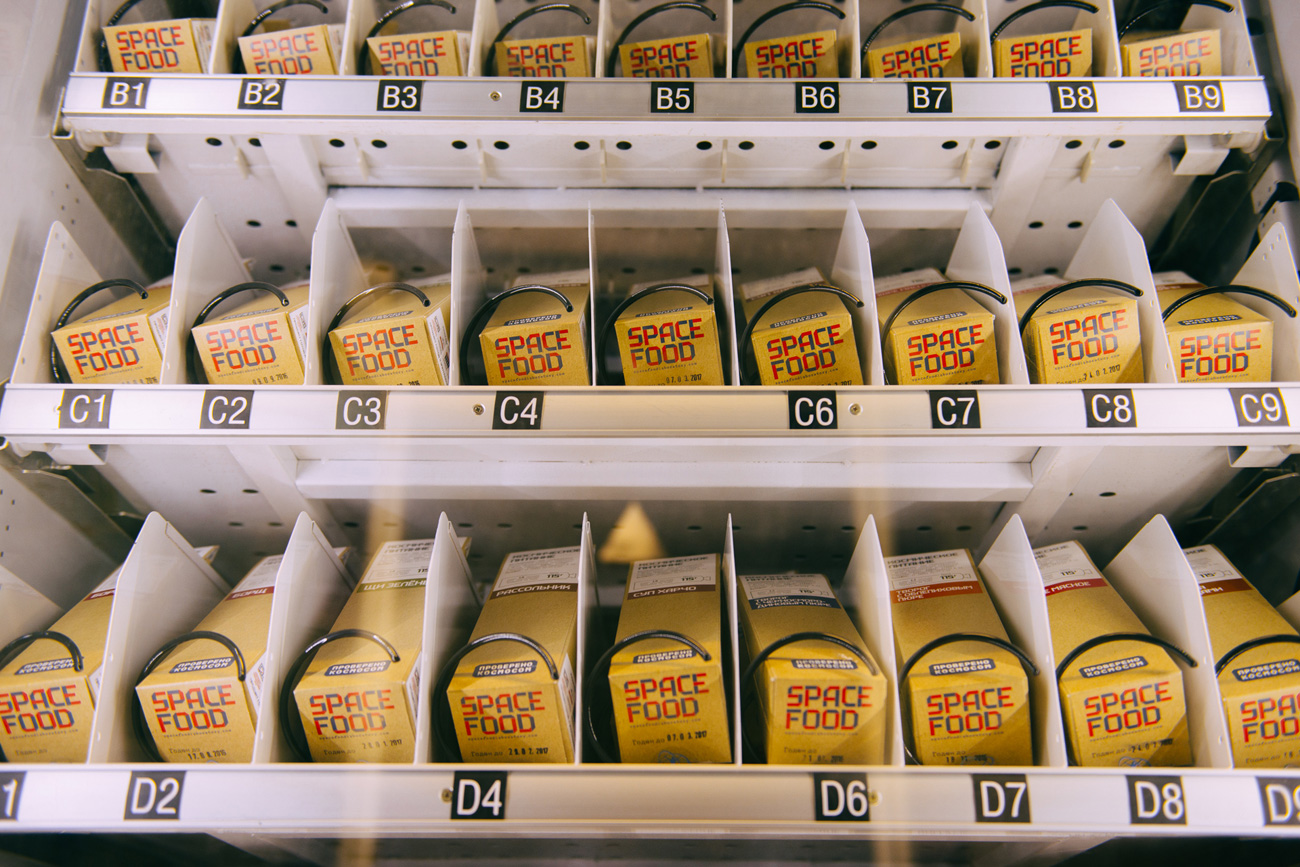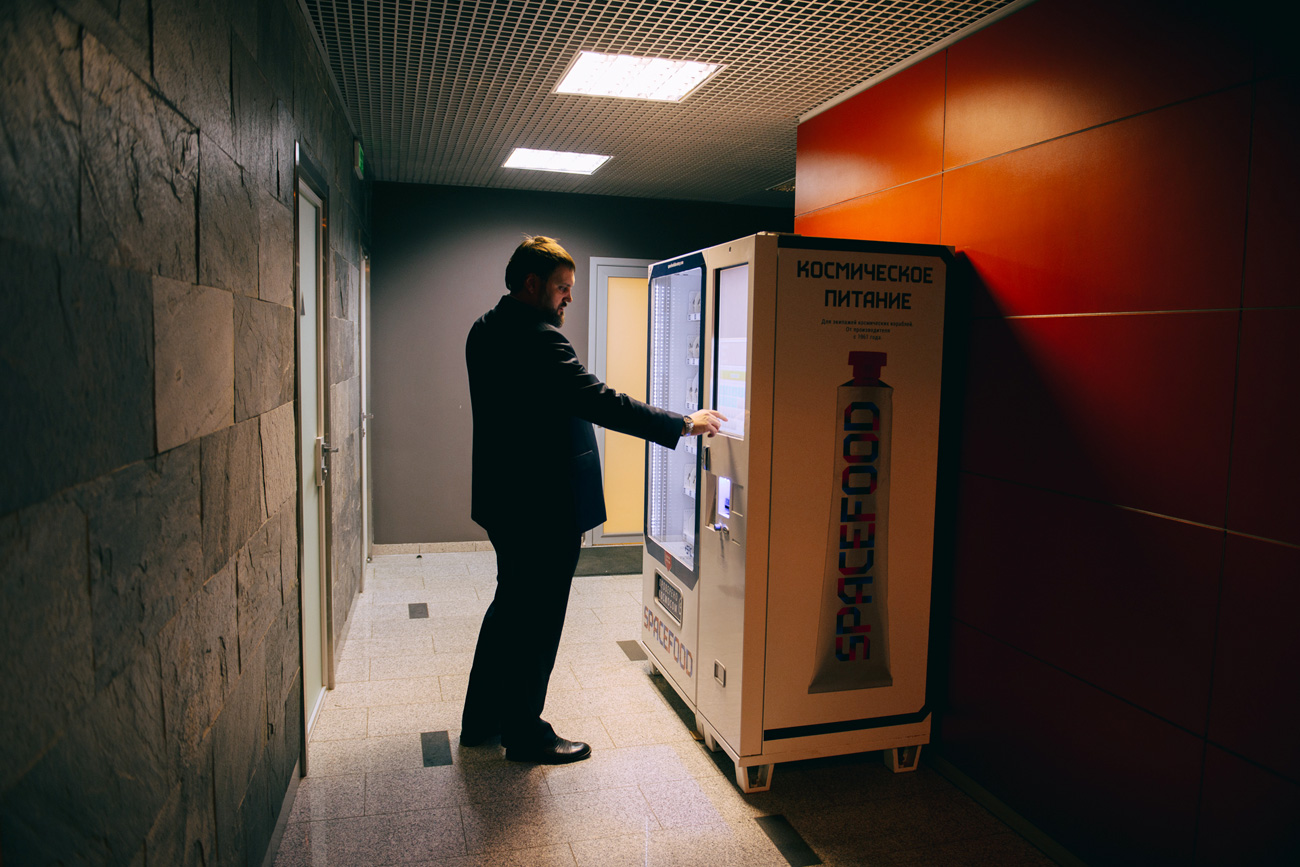Cosmic cuisine: The 2 men hoping to launch Russia’s space food market

In 2015 the Laboratory of Space Food's revenues were 5.4 million rubles ($90,000 by current exchange rates) and its net profit was 1.3 million rubles. In 2016, according to the owner, turnover increased by six times.
Dmitry BubonetsCosmonauts basically stopped eating food from tubes a long time ago. They now eat normal food. However, many people do not know this. Nostalgia for the USSR's achievements in space has helped former restaurateur Andrei Vedernikov market an unusual souvenir that resembles a large tube of toothpaste. It contains pureed soups, main courses and dessert.
According to the SPARK business monitor, in 2015 the Laboratory of Space Food's revenues were 5.4 million rubles ($90,000 by current exchange rates) and its net profit was 1.3 million rubles. In 2016, according to Vedernikov, turnover increased by six times.
Coming down to Earth
The idea to sell space food came to Vedernikov in 2011. However, the preparatory stage dragged on for four years, in which the entrepreneur tried to make agreements with the Scientific Research Institute for the Food Concentrates Industry and Special Food Technology, the main developer of space food, and the Biryulyovsky Experimental Factory, the producer and supplier of cosmonaut food.
 Nostalgia for the USSR's achievements in space has helped former restaurateur Andrei Vedernikov market an unusual souvenir that resembles a large tube of toothpaste. Photo: Andrei Vedernikov. Source: Dmitry Bubonets
Nostalgia for the USSR's achievements in space has helped former restaurateur Andrei Vedernikov market an unusual souvenir that resembles a large tube of toothpaste. Photo: Andrei Vedernikov. Source: Dmitry Bubonets
The problem is that the original formula and production equipment are protected by the state. President Vladimir Putin helped persuade the state structures to cooperate – he had often made public appeals to promote the country's achievements in space.
Vedernikov registered the Laboratory of Space Food company and the Space Food brand. He admits that while he was not the first entrepreneur to try to make agreements with cosmonaut suppliers, he was the most persistent.
For Vedernikov it was very important to reproduce not only the package but also the taste of space food, in order to make it authentic. The only difference is the 115-gram package, which is 45 grams smaller than the original. This was because the tube's retail price, in Vedernikov's calculations, had to be less than 300 rubles, while the real space tube costs more.
Currently the assortment consists of 12 dishes. The customers' favorite dish is the borsch. Vedernikov buys the raw materials from Russian farmers.
Stratospheric demand
Products under the Space Food brand went on sale in February 2015. The first vending machine was installed in the Space Pavilion at the VDNKh (Exhibition of Achievements of National Economy) exhibition grounds.
 Vedernikov thought that it would be the young, those who usually use vending machines, who would be the main customers, but then he saw that in general it was the older generation that bought the space food. Source: Dmitry Bubonets
Vedernikov thought that it would be the young, those who usually use vending machines, who would be the main customers, but then he saw that in general it was the older generation that bought the space food. Source: Dmitry Bubonets
Vedernikov thought that it would be the young, those who usually use vending machines, who would be the main customers, but then he saw that in general it was the older generation that bought the space food. The entrepreneur believes that the older generation still has nostalgia for the USSR's achievements in space.
By summer 2015 the businessman had installed machines in the Moscow Planetarium, the various space museums and thematic exhibitions. A total of 30 machines can now be found in museums in St. Petersburg, Kirov, Yekaterinburg, Gelendzhik, Samara, Sochi and other cities.
"If the assortment of dishes is expanded and in terms of price will resemble traditional fast food, the company will be able to develop and enter the mass market," said Sergei Shavkunov, executive director of Moscow-based consultancy firm J'son & Partners Consulting.
What is preventing the growth of Space Food sales now is not a lack of demand but the capacity of the Biryulyovsky factory: Its main clients are still cosmonauts. Vedernikov says that he receives requests for samples from Canada, the UK, Japan and other countries, but it is impossible to rapidly increase production.
Souvenir or fast food?
Half a year after installing the first vending machine, Vedernikov encountered his first competitor. In July 2015 MADI graduate Alexander Poklad registered a company called Kosmicheskoye Pitaniye (Cosmic Food).
Poklad and his investment partners bought production facilities in the city of Oryol (200 miles south of Moscow) and the VNIITEK Institute (in Russian), which, according to the entrepreneur, has worked with space food in the past, began developing the formulas. The menu slightly differs from Space Food's: For example, it offers mushroom soup.
 Half a year after installing the first vending machine, Vedernikov encountered his first competitor. In July 2015 MADI graduate Alexander Poklad registered a company called Kosmicheskoye Pitaniye (Cosmic Food). Source: Dmitry Bubonets
Half a year after installing the first vending machine, Vedernikov encountered his first competitor. In July 2015 MADI graduate Alexander Poklad registered a company called Kosmicheskoye Pitaniye (Cosmic Food). Source: Dmitry Bubonets
About a year passed between the registration of the company under the Kosmopit brand and the first sales of food. Poklad chose different retail channels. He decided not to get involved with theme museums, but sells the tubes through online stores and the Trassa chain of gas stations.
In the beginning Poklad's tubes cost 10-40 percent less than Space Food's and were 45 grams heavier, but the prices are now much the same. A total of 40 dealers now sell Kosmopit in various Russian regions. Poklad will not divulge his revenues but admits that for now the company is incurring losses. He plans to break even in the spring of 2017.
Alexei Belov, one of Kosmopit's dealers and manager of the Master Jinn online food store, says that the brand sells "nostalgic solutions from the times when man was beginning to conquer space."
Poklad believes that food in tubes is not only a souvenir but also a possibility to have a quick bite. That is why he chose to sell his product in gas stations – hungry drivers represent a much greater market than collectors of space souvenirs.
First published in Russian by RBC
Read more: What is Vladimir Putin’s officially declared salary?>>>
Subscribe to get the hand picked best stories every week
All rights reserved by Rossiyskaya Gazeta.
Subscribe
to our newsletter!
Get the week's best stories straight to your inbox